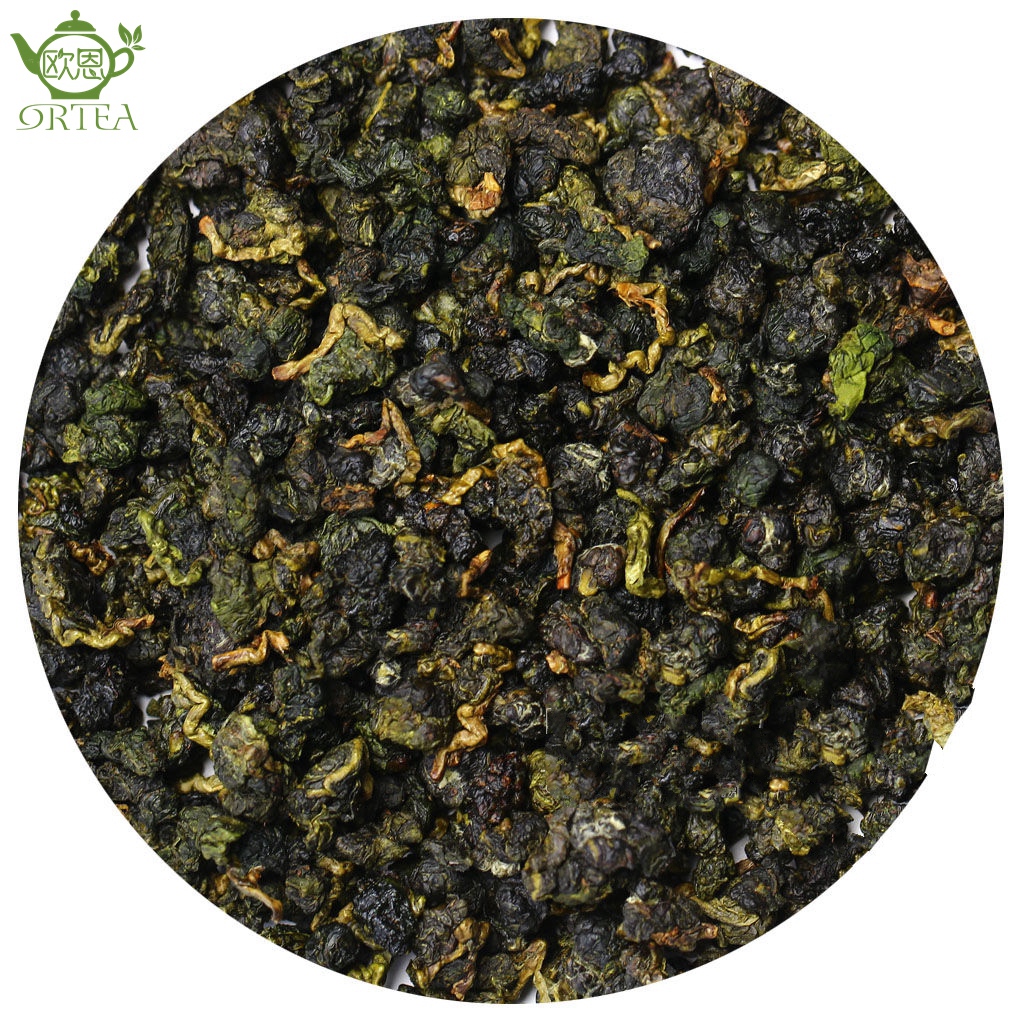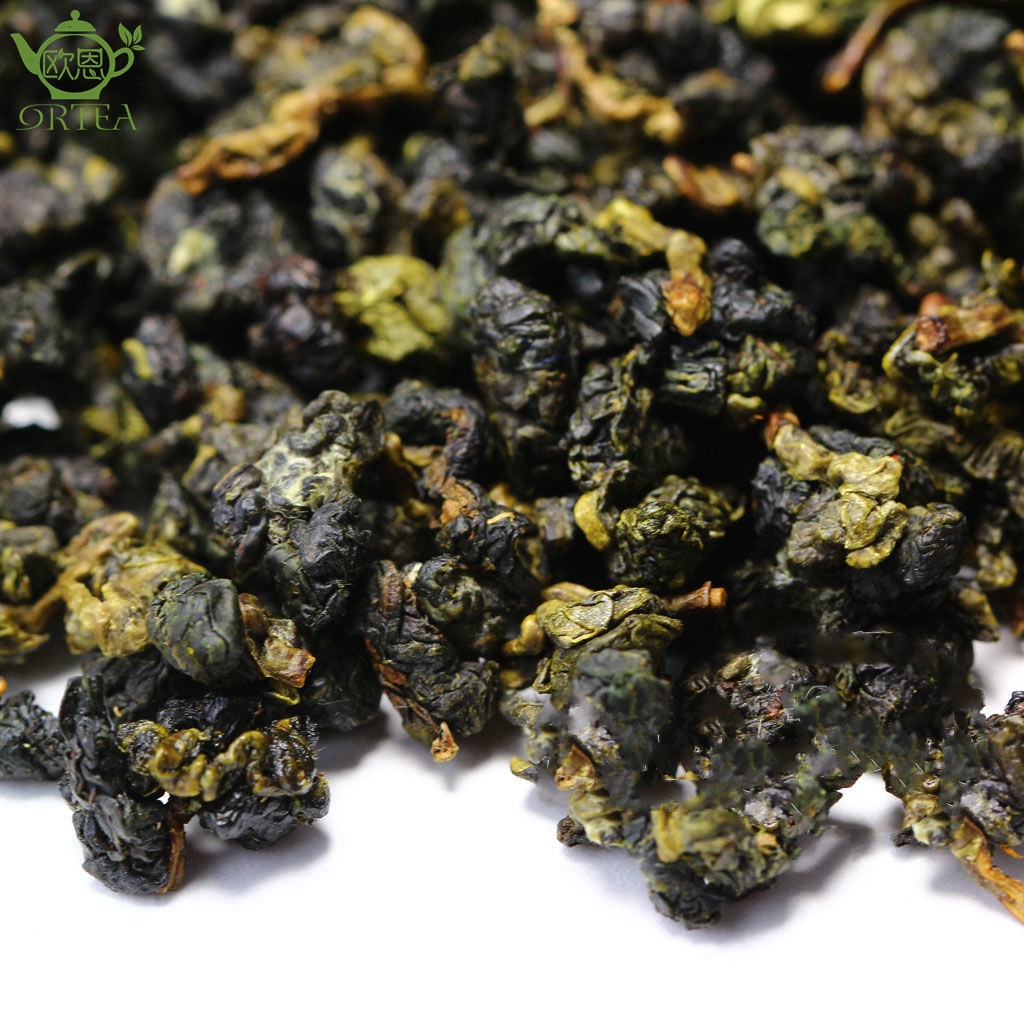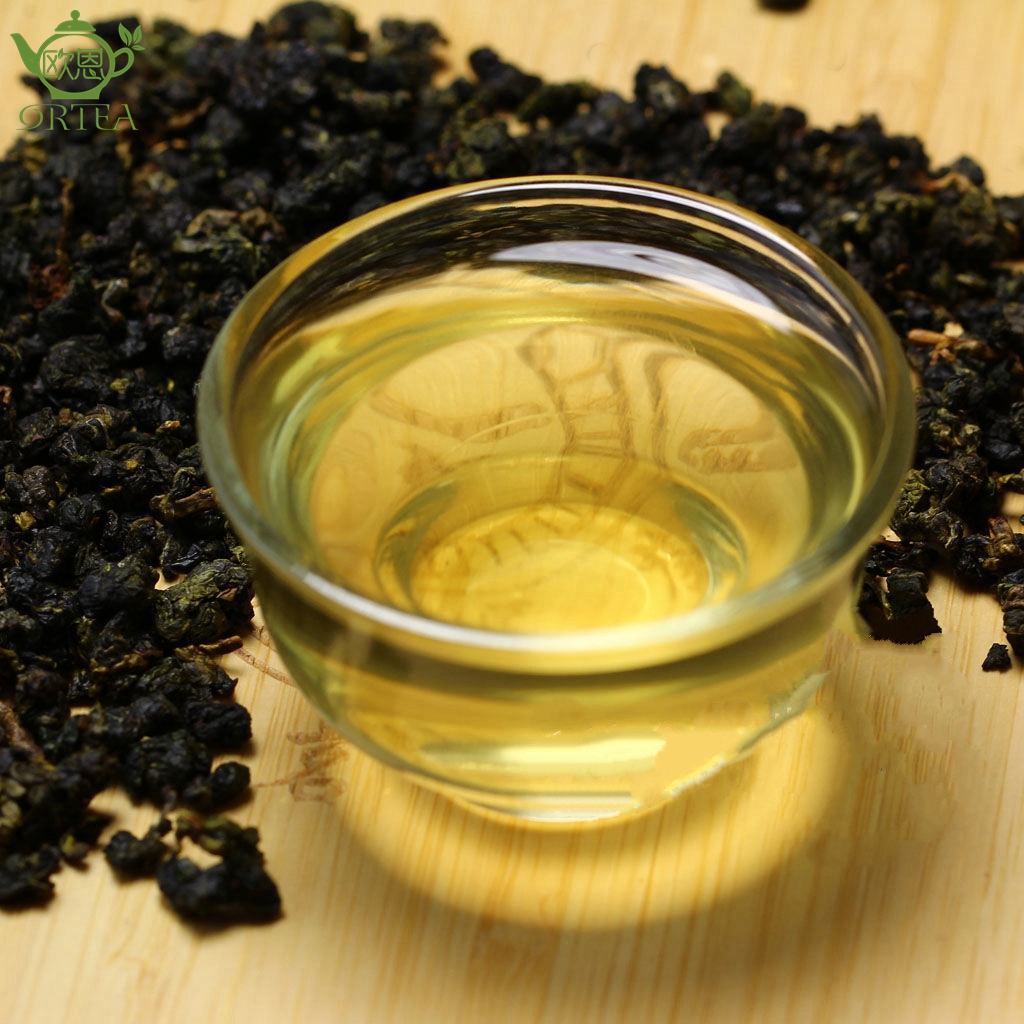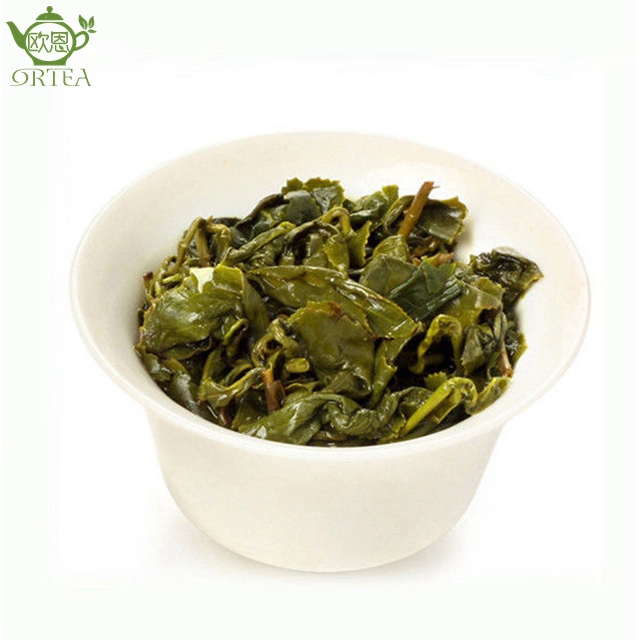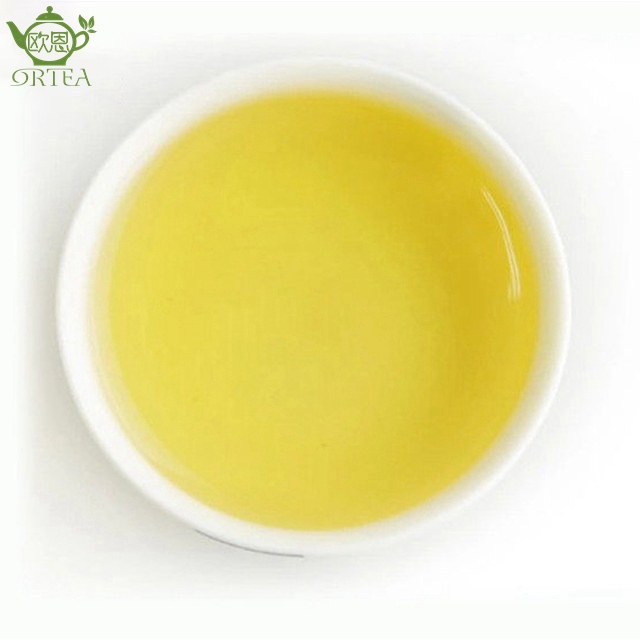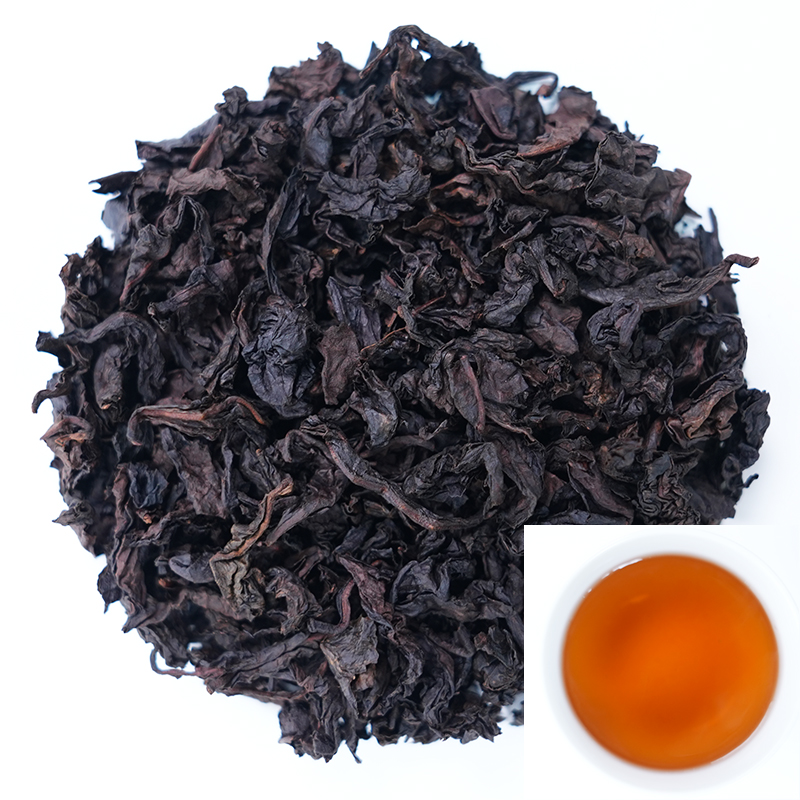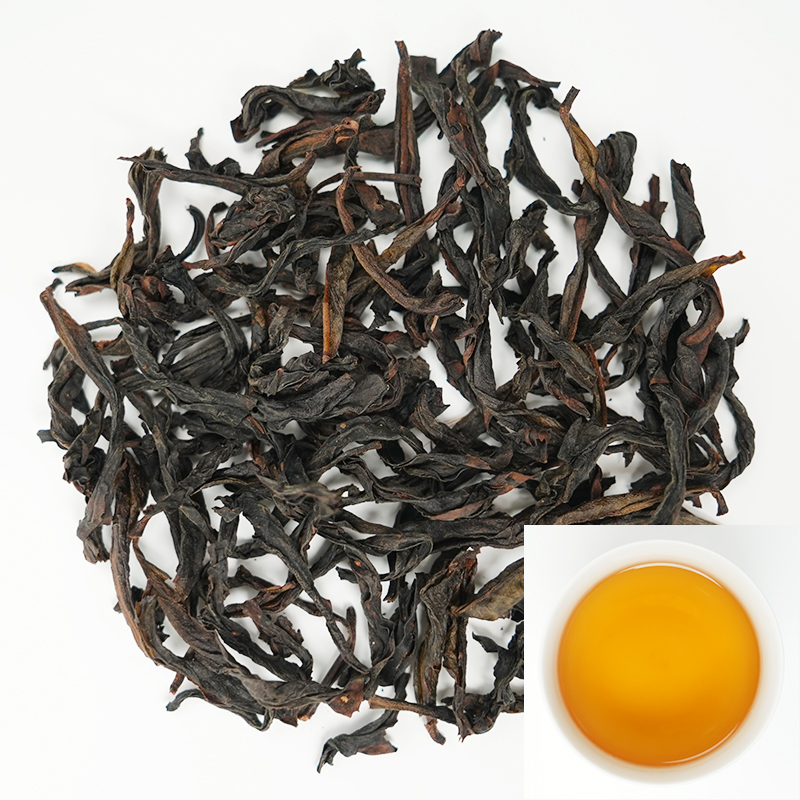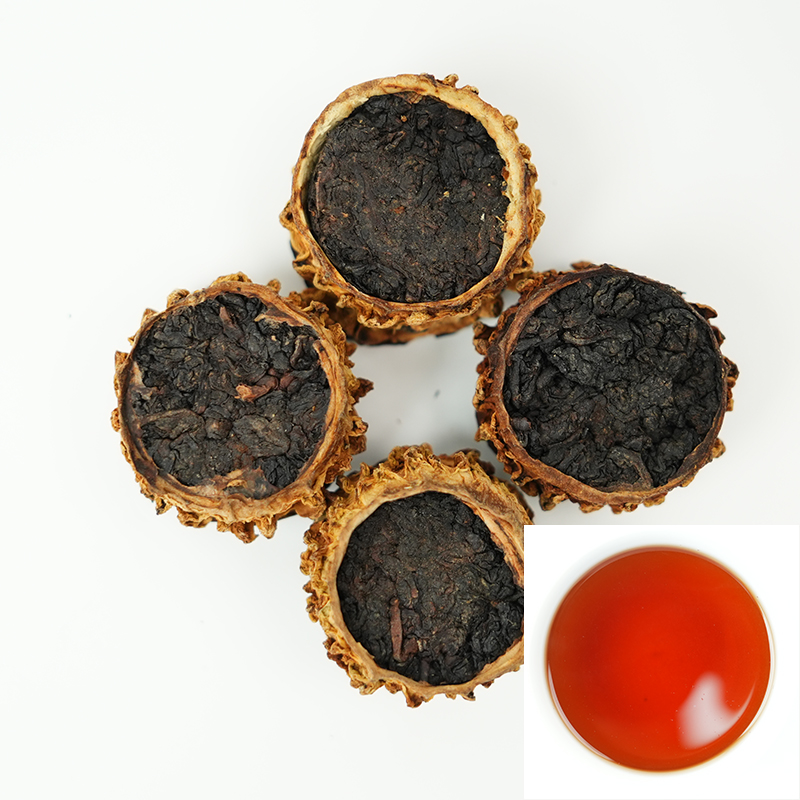Taiwan Dong ding Oolong Tea/ Taiwan Tung-ting Oolong Tea
| Origin | Taiwan |
| Altitude | 600M above sea |
| Process | Sun Withering -Indoor Withering-Rolling-Dried-Packing |
| Harvest Time | Spring,Summer |
| Tea Leaves |
Large leaves handmade rolled into tightly even ball shape,glossy and dark green |
| Infusion | Golden yellow |
| Taste | Sweet aroma, smooth and soothing flavor |
| Aroma | Naturally sweet, fruity aroma |
| Brewed Tea Leaves | Elastic leaves in brown green color |
| Shelf Life |
Two Years,Stored in a well-closed container away from moisture and light |
Dong Ding Oolong Tea, also spelled Tung-ting Oolong Tea, is one of the most famous Taiwanese oolong tea. The name Dong Ding means "Frozen Summit" or "Icy Peak", which is the name of the mountain in Taiwan on which the original tea plants are planted. Those tea plants were brought to Taiwan from the Wuyi Mountains in China's Fujian Province about 150 years ago and are grown in the Lugu region of Nantou County in central Taiwan (Dong Ding Mountain, Lugu Township, Nantou County, Taiwan) on the height of 800-2000 m. Climate of Nantou county gives unique opportunity to grow highest quality tea.
Product Details
1.Handmade rolled into tightly even ball shape,glossy and dark green.
Our Dong Ding Oolong Tea is typically composed of 3-4 leaves, sometimes including a bud, picked by hand or machine. Afterwards, the tea undergoes a withering process, either outside, indoors, or a combination of both. The leaves are then tossed and bruised on large bamboo baskets, which begins the oxidation process. Final rolling is undertaken, either by hand or by machine. A final firing sets the oxidation typically somewhere between 15%-30% oxidation, sometimes over charcoal, giving the tea a toasty, woody flavor.

2.Sweet aroma, smooth, Naturally sweet, with ripe fruit and floral fragrance and roasting flavor.
The result is a tea with a robust flavor and notes of roasted barley, caramel and baked plum. One of the special characteristics of our Dong Ding Oolong Tea is a lingering sweetness, known as "hui gan". Careful processing of this tea is evident in all its aspects: the deep green handpicked leaves, rich aroma, and golden liquor.

3 Elastic leaves in brown green color with slightly tea stems which improve the tea taste depth, green leaves with a bit red edge

The dried leaves of our Dong Ding Oolong Tea are green in the center and reddish in the edge and very thick. They are rolled in perfect balls. When brewed, Dong Ding Oolong Tea has a distinctive honey taste and aroma with roasted notes. Tea liquor is lightly colored and has a unique lingering sweet aftertaste.

This tea has a well-balanced flavor, and a velvety mouthfeel that transforms into a sweet finish with lingering hints of honeydew, altogether a full-bodied and delicious, refreshing tea, great served hot or cold.
You might also prefer below Taiwan Oolong from High mountain:
l Li Shan Taiwan Oolong
l Dong Ding Taiwan Oolong
l Jin Xuan Taiwan Oolong
l Da Yu Ling Taiwan Oolong
l Roasted Dong Ding Taiwan Oolong
l Flowery Dong Ding Taiwan Oolong

Lugu Townp, Nantou County, Taiwan
The main origin of Dongding oolong
The altitude is between 800-1000 meters
All year round covered with clouds and mist, abundant rain
Dense high forest, good soil quality
It is one of the representative tea areas of Taiwan high mountain tea

species
Qin xin Oolong
Traditional wild high-quality varieties
It is a rare tree species used in Taiwan to make oolong tea

Craft
Traditional tea making process
Inherit a century-old traditional craft
Follow the charcoal roasting method
Remove most of the "green grassy flavor"
Let the smooth tea charm be fully displayed

Process:
Firstly, the leaves are hand-picked by farmers.
Secondly, they are spread on the tarpaulin to facilitate withering.
Each leaf is given special attention and is heated equally. When they attain the required consistency, they are then fermented. In the fermentation stage, the leaves are enhanced with their captivating aroma, are carefully arranged in a layer and are left in a cool room through the night. The leaves obtain a special red color at the edges but they remain green in their middle part.

The fourth stage is oxidation, where the leaves are intensely fried at varying temperatures.
Frying is important because it removes moisture from the leaves and to mix the resulting material with hot air so that it can have the required consistency.
The next stage is twisting, where the leaves are put into a machine designed to shape them into small balls.
Afterward, the leaves are sorted to remove any unwanted components and tea leaves with cuttings and finally, they are fried again under a regulated temperature in preparation for storage.


History:
Dong Ding is the name of the mountain located at the center of Taiwan called Nantou. The name of Dong Ding derived from a story: the path to the peak of the mountain used to be very slippery and climbers needed to conserve their strength on their toes to hike this mountain; in Chinese that is called "Dong Jiao Jian" and thus derives the origin of the name Dong Ding.

About 150 years ago, the oolong cultivar was brought to Dong Ding Mountain from Wuyi, Fujian, China by a Nantou villager who participated in the imperial examinations held in Fujian(at that time, Taiwan is only a part of Fujian Province). Initially, the name of Dong Ding Oolong meant for the tea produced around Dong Ding Mountain. But when its fame and demand increased, ooong teas produced in other areas as well were also called Dong Ding Oolong as long as they followed the Dong Ding traditional manufacturing process. Dong Ding Oolong is oxidized anywhere from 30%-40% and then heavily baked to yield a darker roast. As a result of this oxidation and baking process, the roasty and ripe fruity aromas start to evolve. Dong ding oolong is great for those looking to transition from coffee to tea.

Speciallity:
Alpine climate, no pollution
Original ecological altitude, teas of high nutrition than common teas.
Between the characteristics of green tea and black tea, it has the green tea character of refreshing while no harm to stomach, and the effect of black tea of warming the stomach while not increase inner heater.
It’s lasting even after brewed for 10 time, still with lingering fragrance, sweet and fruity.
Picked manually, the leaves are intact, thick, and the boiled tea leave is soft.

Benefits:
Improvineg condition of teeth.
Boost the immune system.
Beauty the skin.
Brewing skills
1. Warm pot: After the tea set is rinsed and heated with boiling water, pour out the water
2. Putting tea: Put the tea to 1/5 of the bowl, you may adjust the quantity according to personal preference.
3. Wash Tea: Rinse the pot with 100℃ boiling water and pour out the tea infusion immediately
4. Brewing tea: steeping the first three times of tea for about half a minute, each subsequent steeping time will be extended by 10-20 seconds
Warm Reminder: The tea can be brewed continuously for more than 10 times, and the flavor is better if you use a purple clay pot, etc.
How to choose the right Taiwanese tea?
First of all, Taiwanese tea is classified according to the degree of roasting: the original flavor type (raw tea), and the carbon roasted flavor type (ripe tea).
Secondly, Taiwanese tea is classified according to the intensity of the tea infusion. The taste of raw tea is: light, heavy; and cooked tea is divided into light, medium, and high fire according to the degree of roasting.
Tea lovers who usually like green tea or Tieguanyin recommend: fresh fragrant tea, such as Alishan tea.
People usually like Dahongpao of roasted and caramel-like flavor: Carbon roasted tea is recommended, such as Dongding Oolong tea.

Product recommendation

